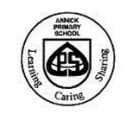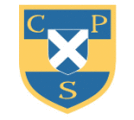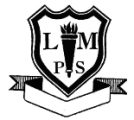Transition from Primary to Secondary
The success of Irvine Royal Academy comes from developing effective partnerships involving three main groups – pupils, parents and teachers. Each group has a role to play in the transition programme as pupils move from primary to secondary.




Pupils
- The transition programme in Irvine Royal Academy began in September where primary 7 pupils were invited to our challenge days.
- Each group had the opportunity to be exposed to a selection of subjects, receiving an experience of their new school and being able to gain an understanding of the geography of the school, the set up of a school day and an awareness of the learning and teaching as well as the resources that support this.
- Throughout the school year pupils have had an opportunity to participate in events and competitions organised by Irvine Royal Academy, such as drama, music and art.
Teachers
- The close links with our associated primary schools is on-going as secondary teachers visit primaries to exchange details of the courses taught and the materials used so that they are conversant with the curriculum of both primary and secondary.
- As part of both the transition programme and Curriculum for Excellence, secondary teachers have had the opportunity to meet with primary pupils in delivering specialised lessons and allowing pupils to experience life in Irvine Royal Academy.
- Members of staff including the Head teacher and pastoral staff have visited and met with primary seven pupils discussing a number of matters involving the move to Irvine Royal Academy.
- Throughout the year staff from the Support Department visit each of the associated primary schools to ensure a smooth transition of information regarding pupil needs.
Parents
Parents play a vital role in supporting their child in making the transition from primary to secondary. To support your child there are many things you can do to help them settle in. These include:
- Ensure excellent attendance and timekeeping. The school day begins at 8.50am. Pupils must be in class on time and ready to begin learning.
- Ensure full school uniform is worn.
- Talking to your child about the changes they are facing and if there is anything they are unsure or worried about.
- Encourage them to take responsibility and organise themselves.
- Keep a copy of the timetable where it can be easily seen. This will remind them about days where certain books, or PE kit are needed.
- Take an interest in what they are learning and help them.
- Take an interest in new friends they are making.
- Encourage them to take part in after-school clubs and activities. They can help your child learn new things in a fun way and increase motivation to learn.
- Make a note of key school events such as parents’ or information evenings, school events, school sport days.
- Check our website www.irvineroyal.co.uk for latest information, timelines, school policies.
- Contact the school if you are concerned or unsure of anything.
Research has shown that the most common worries a P7 pupil starting secondary school may have are no longer an issue after just 1 or 2 weeks at their new school. If your son/daughter expresses any worries it is useful to tell them this, and to emphasise that everyone else will also be feeling anxious.
Time spent early on in establishing habits of work and independence is an investment that will save endless time, battles and heartache in the long run. The habits and routines that children develop in First Year are those that will stay with them throughout their secondary schooling and often throughout their working lives – it’s worth the effort of getting it right to start with (so much easier than having to try to put things right after they have gone wrong). If you can help your son/daughter to do this, you will really be making a difference.

